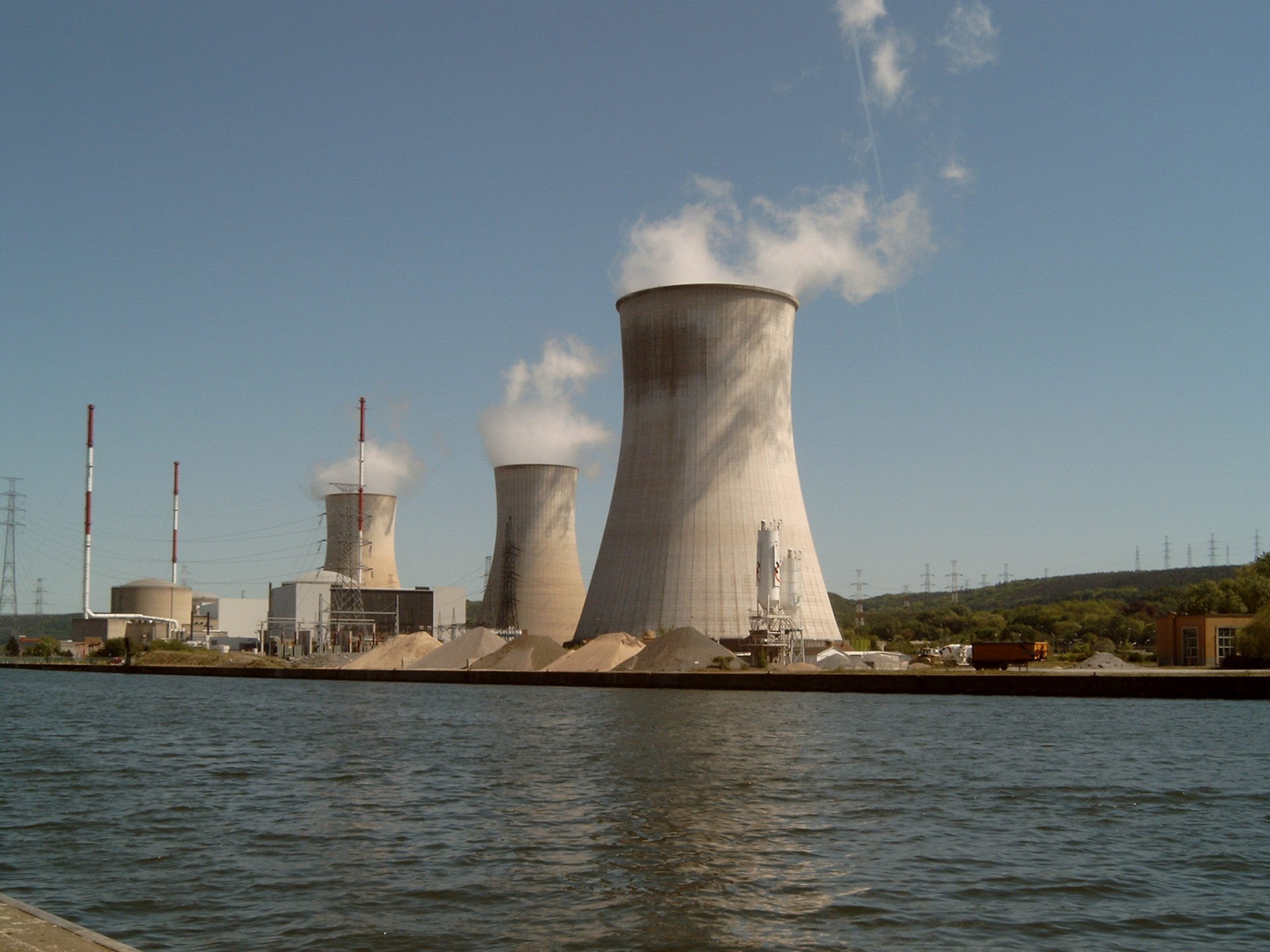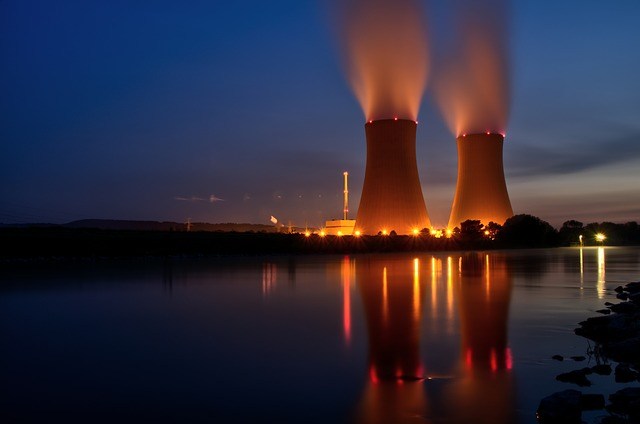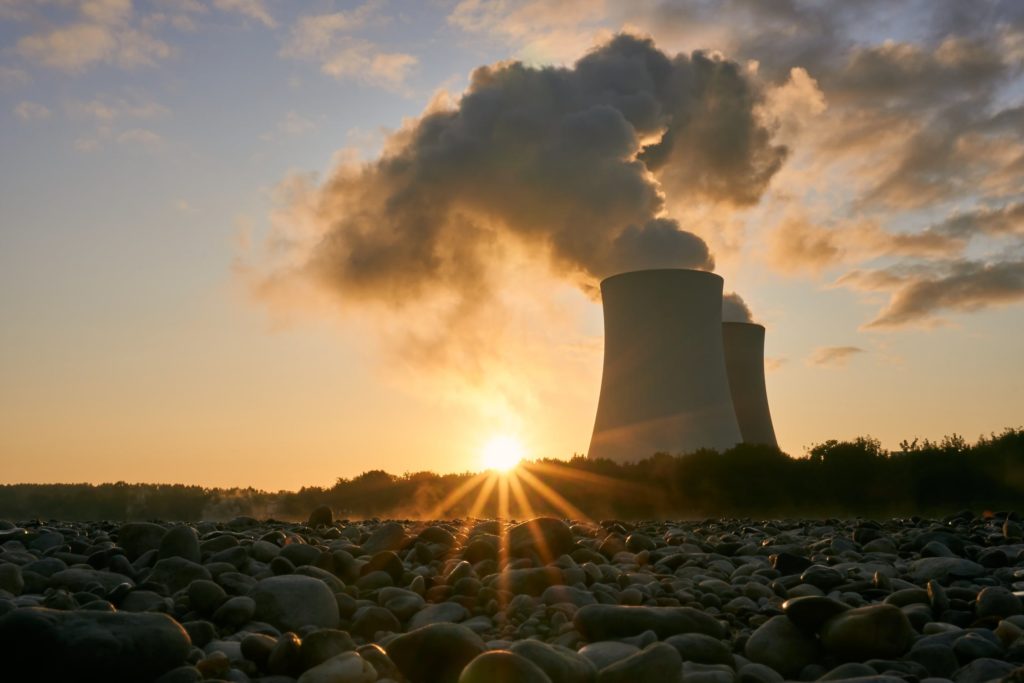While politicians continue to debate Belgium’s planned shutdown of its nuclear reactors, a general shift in attitudes towards nuclear energy and power in general is taking place, research from Vrije Universiteit Brussel (VUB) indicates.
Belgium’s exit from nuclear energy continues to be a bumpy road, with some arguing it will lead to an energy crisis greater than that currently facing Belgian (and other European) households. Soaring bills have forced many Belgians to reconsider our connection to nature and the planet.
Karel Deneckere of the Faculty of Social Sciences and Solvay Business School at VUB has studied this evolution in public discourse in regards to nuclear power.
Natural resources no longer seen as infinitely for the taking
“Until relatively recently, we saw nature as just a bunch of resources at our disposal and sinks for all sorts of waste we produce,” Deneckere told The Brussels Times.
“But the more there are oil spills, flooding, wildfires and of course nuclear accidents, the more people start to question: what are we doing to nature? And what are we doing to ourselves, by doing it to nature? This kind of mutual dependence is becoming more and more visible.”
Deneckere analysed publications by the umbrella organisation of Belgian electricity companies to track sentiments towards nuclear power, along with Belgian environmental movements and media reports.

Tihange Nuclear Power Station is one of two nuclear energy production sites in Belgium. Credit: Wikimedia Commons.
While some see nuclear energy as a climate-friendly and reliable alternative to fossil fuels, others view it as inherently risky, expensive, or problematic due to the waste it produces. Either way, the nuclear question is multifaceted and can't simply be reduced into two camps.
Different areas of debate
Debate about nuclear energy focusses on seven key areas: techno-optimism, techno-pessimism, government responsibility, corporate social responsibility, democratic control, green politics and sustainable development. Deneckere finds it helpful to split these into three categories:
Preserving the status quo – this discussion centres on the clear advantages and pitfalls of nuclear energy. On the more abstract level, this comes down to humans’ ability to control the forces of nature.
Related News
- Scientists achieve fusion energy milestone
- Green energies? Nuclear power and natural gas cause a stir
- Report comes under fire for claims about negative outcome of nuclear exit
Nuclear but with strict conditions – nuclear energy is only a viable option so long as it is subject to democratic decision-making and transparency. If a better alternative presents itself which has popular support, this should replace nuclear.
Unconditional opposition to nuclear – here critics argue that the energy crisis can only be solved by focussing entirely on the wider issue of the human relationship to the natural world. We should desist from activities that pose a threat to the environment and our future within it. This debate extends beyond the question of energy provision to consider broader questions of social and economic structures.
As Deneckere explains: "The third category aims for a fundamental transformation of the Belgian energy system and challenges the dominant assumptions about the relationship between humans and nature."
He explains that many now recognise that humanity's fate is inextricably interwoven with its natural surroundings: "We can’t dominate nature, it's a fantasy. We ourselves are a part of it."

The nuclear power plant in Grohnde in the Hamelin-Pyrmont district in Lower Saxony. Credit: Pixabay.
Deneckere explains that debate about nuclear energy is becoming more nuanced than simply being for or against it. Although very rare, accidents such as Chernobyl (Ukraine) in 1986 or Fukushima (Japan) in 2011 have made a lasting impression on public perception.
A technology misunderstood
In an article for the European Scientist, Jean-Marie Berniolles (a specialist in severe nuclear accidents who worked at the French Alternative Energies and Atomic Energy Commission) stated that “overblown safety debates” were “killing European nuclear energy.”
He argues that an inaccurately-reported leak at China’s Taishan nuclear power plant "deeply changed Europe’s perception of nuclear plants, turning what should have been one of the most sustainable electricity sources into a lightning rod for criticism."
Lessons to be learned here.
“Belgium’s plan to close its nuclear power plants by 2025 could put energy supplies coming under pressure and further increase the price of electricity, a recent study found.” https://t.co/1uIU3kOGxV — Zion Lights (@ziontree) February 3, 2022
Berniolles laments the fact that any public or political discussion of nuclear reactors – either under construction or operating at present – inevitably leads critics to invoke Fukushima and Chernobyl and "largely exaggerate the overall consequences from these accidents." He notes that almost all discussion of nuclear energy follows ideological red herrings that are "entirely divorced from scientific facts."
Yet VUB’s Deneckere believes that this too is a reduction of the debate and that, at least in Belgium, the discussion doesn't simply fall into such binary camps as “nuclear energy is dangerous and bad” and “nuclear energy is safe and good."
Belgians see it differently
Deneckere says that various societal crises and developments have paved the way for "an alternative, ecological worldview [that is] slowly reaching larger audiences.” This leads to more informed views on nuclear power.
This departure from a basic understanding of the issue has led to greater scrutiny of anti-nuclear sentiment. For instance:
This is madness. As part of its energy transition, Belgium decides to prematurely phase out nuclear power plants and replace them with 2 to 3 gas-fired power plants.
Reminder: nuclear energy emits 30 times less CO2 than natural gas.https://t.co/5BIuM5PDo0 — Witold Strzelecki (@wstrzelecki) May 3, 2021
Deneckere observes that people are coming round to the idea that humankind and the environment are in symbiosis, "making it impossible to exercise ultimate control over nature." Borrowing a metaphor from systems thinker Donella Meadows, Deneckere likens the relationship to dancing.
He endorses an acceptance of nature's ultimate supremacy and for the technological world to respond to ecological realities: "an energy system must be brought into harmony with nature, one that is resilient enough to cope with its unpredictability.”
Could that be nuclear power?
Although nuclear power could certainly be adapted to work alongside renewables in greater harmony with nature, there remains a stigma attached to this complicated energy source that is neither a fossil fuel nor renewable.
In Belgium, only a few academics dare to insist on the need to develop nuclear power to fight climate change.
I understand them: they fear the aggressiveness of anti-nuclear activists who have also infiltrated many news outlets. https://t.co/oWBhvXYArt — Damien ERNST (@DamienERNST1) September 25, 2021
But the turn away from nuclear isn't just an ingrained fear of reactor meltdowns; it highlights the shifting attitude of how we see ourselves in nature. Deneckere underlines that "it is only through reflection and careful consideration that we become aware of our own beliefs and assumptions," allowing us to reassess our stance towards questions of energy provision.

